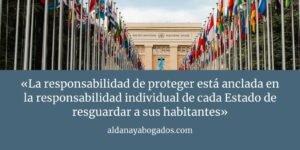At the beginning of 2017, former Peruvian president Alejandro Toledo, began to go through a judicial process due to the accusation of crimes of misappropriation of funds and money laundering against him after his presidential term from 2001 to 2006.
The arrest warrant was executed on charges of receiving more than $20 million in bribes. of the Brazilian construction company Odebrecht. Toledo, was residing in the United States when he was notified of the judicial measures, therefore in May 2018 the Peruvian government requested his extradition to the North American country. The Peruvian Public Prosecutor's Office determined in its investigation that he could be subject to the sum of penalties for real concurrence of crimes of 16 years and eight months of imprisonment.
Extradition is a judicial process through which a State makes a request for the return of an indictee The international arrest warrant has been issued for a crime committed in another country, with the intention of prosecuting the person in the requesting country. It is regulated by international treaties and the laws of each country, since in order for it to be effective it is necessary to sign international agreements that protect this figure between the nations involved. Peru and the United States are among the countries that have formalized their participation in these international agreements. However, in the case that this prior agreement does not exist, the State may execute the extradition but is not obliged to do so.
July 19, 2019 Judge Thomas Hixson of the court in San Francisco.The U.S. Supreme Court, an expert in intellectual property and antitrust law, determined that Toledo should face extradition as a detainee. The request was justified as a measure to prevent any attempt to escape or evade justice in this extradition process, approving the request of the U.S. law firm hired by the Peruvian government.
At the same hearing in JulyThe defense of the former president requested the assignment of a public attorney, a proposal that was scheduled to be evaluated on August 22 of this year before the same court.
The facts in the case of former president Alejandro Toledo
The case has been supported by the confession of the principal front man of the accused, the Peruvian-Israeli businessman Josef Mainman, who claimed to have received (at Toledo's request) deposits of more than 21 million dollars from the companies Odebrecht and Camargo Correa in exchange for the concession of road infrastructure construction works in Peru. But whose admission of facts or collaboration must be analyzed in depth before giving it full evidentiary value, since it could be vitiated of nullity.
Former Peruvian presidents who have held office since 2001 have been investigated. for crimes related to the Odebrecht case. Ollanta Humala was sentenced to 20 years in prison for acts of corruption, while Alan García was given a preliminary detention order for his involvement in money laundering, collusion and influence peddling, a sentence that could not be carried out due to the former president's suicide.
To conclude, at Alan Aldana & Abogados, we consider that these cases of relevance where there are indications of political influence, generate in the public opinion the so-called parallel judgments. These undoubtedly permeate those responsible for investigations and judges with perceptions that may be far from the legal reasoning that should be applied to the specific case. Therefore, in addition to extolling the total independence of the decisions of jurisdictional bodies, for this type of cases our firm advises working with experts in strategic communication to support the defense team.
Sources consulted:













